Politics
Putin Sends Ultimatum to Ukraine, End War Through Talks or Confront Force
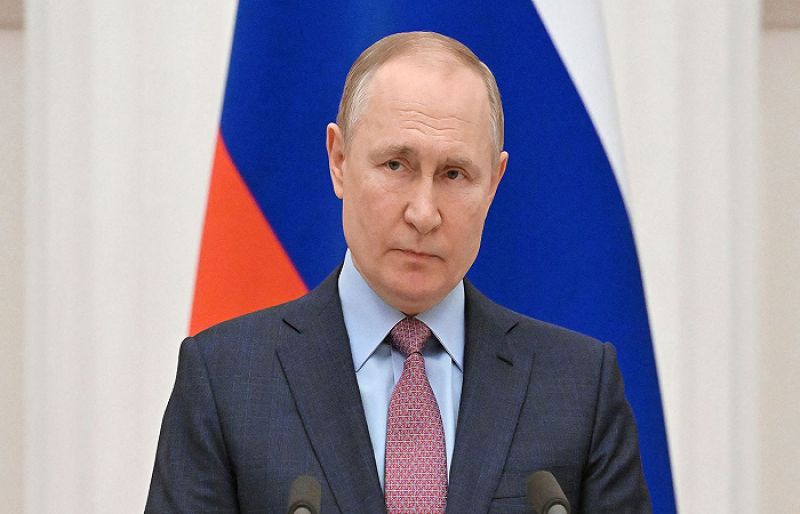
Russian President Vladimir Putin said on Wednesday that the war in Ukraine could be ended through negotiations “if common sense prevails,” a solution he said he preferred. However, he added that he was prepared to achieve an end by force if no other option remained.
Speaking in Beijing at the end of a visit that resulted in an agreement on a new gas pipeline to China, Putin said he perceived “a certain light at the end of the tunnel”, given what he said were sincere efforts by the United States to find a settlement to Europe’s biggest land war since World War Two.
“It seems to me that if common sense prevails, it will be possible to agree on an acceptable solution to end this conflict. That is my assumption,” Putin told reporters.
“Especially since we can see the mood of the current US administration under President (Donald) Trump, and we see not just their statements, but their sincere desire to find this solution… And I think there is a certain light at the end of the tunnel.
Let’s see how the situation develops,” he said.“If not, then we will have to resolve all the tasks before us by force of arms.”
However, Putin indicated no willingness to soften his long-standing demands, including that Kyiv abandon any idea of joining NATO and that it end what Moscow says is discrimination against Russian speakers.
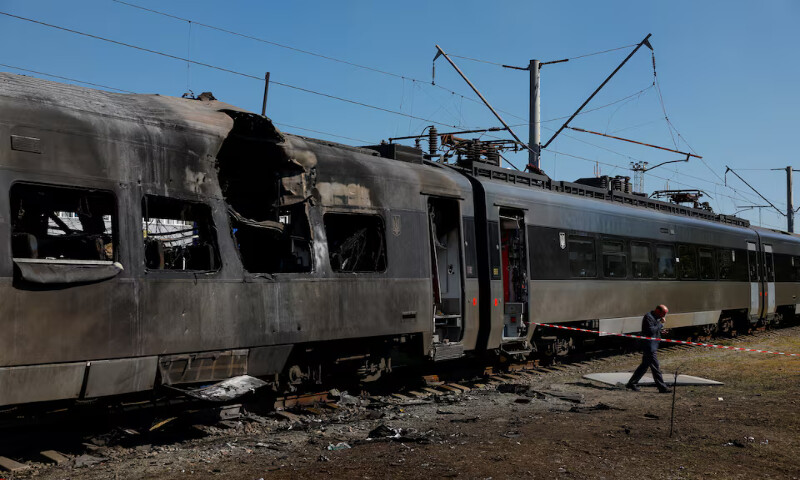
An engineer walks next to a Ukrainian train, which was hit by a Russian drone strike in Kyiv, Ukraine. – Reuters
He said he was ready to hold talks with Volodymyr Zelensky if the Ukrainian president came to Moscow, but that any such meeting had to be well prepared and lead to tangible results.
Ukraine’s foreign minister dismissed as “unacceptable” the suggestion of Moscow as a venue for such a meeting.
FAR APART
Zelensky has been pressing to meet Putin to discuss the terms of a possible deal even though the two sides remain far apart.
He has urged Washington to impose further sanctions on Russia if Putin does not agree.
Trump – who has been trying to broker a peace settlement – has also said he wants the two leaders to meet and has threatened, but not yet imposed, secondary sanctions on Russia.
Putin said he would prefer to end the war diplomatically, “by peaceful means”, if possible.
Russia claims to have annexed four Ukrainian regions, a claim Kyiv and most Western countries reject as an illegal land grab backed by a colonial-style war of conquest.
Politics
South Korea prosecutors request 10-year term for ex-president
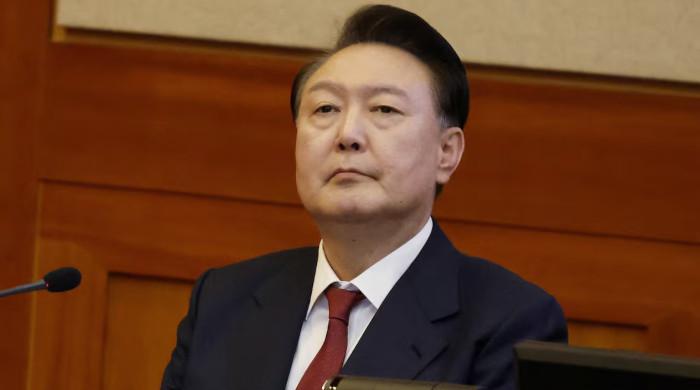
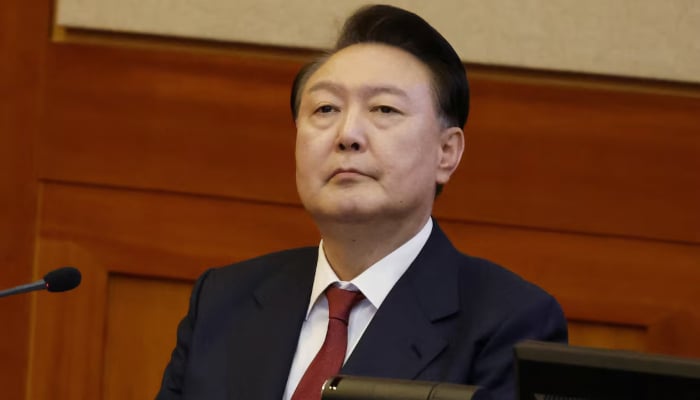
SEOUL: South Korean prosecutors on Friday sought a 10-year prison sentence for ex-president Yoon Suk Yeol, for offences linked to his attempt to impose martial law last year.
Yoon briefly suspended civilian rule in South Korea for the first time in more than four decades on December 3, 2024, prompting massive protests and a showdown in parliament.
Armed soldiers were deployed to parliament under the decree, but the order lasted only around six hours as it was swiftly voted down by opposition MPs, who scaled fences to enter the building. They later impeached Yoon over the martial law declaration.
Since being removed from office in April by the Constitutional Court, he has faced multiple trials for actions linked to his martial law declaration.
The former president was indicted in May for abuse of power over his martial law declaration.
Prosecutors sought a 10-year prison term on Friday for charges including obstruction of justice, after Yoon allegedly excluded cabinet members from a martial law meeting and in January blocked investigators from detaining him.
A Seoul court is expected to deliver a verdict in the case next month, according to Yonhap news agency.
Yoon said this month his decision to declare martial law had been justified in the fight against “pro-China, pro-North Korea, and traitorous activities”.
His three other trials include allegations of leading an insurrection, for which he could face the death penalty if found guilty.
Yoon was the second South Korean president to be removed from office, and the third to be impeached by parliament.
Politics
China’s high-speed rail network passes 50,000km mark

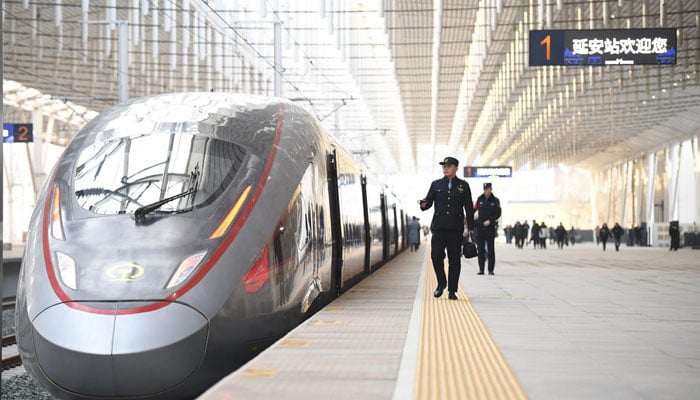
BEIJING: China’s sprawling high-speed rail network passed 50,000 kilometres (31,000 miles) in total operating distance with the opening of a new line on Friday, state media reported.
The country has the world’s largest rail network — one-fifth longer than the circumference of the earth.
The trip begins in the city of Xi’an — home to China’s famed Terracotta Warriors — and ends in Yan’an to its north, state broadcaster CCTV said. Both cities are in northern China’s Shaanxi province.
Some homes were demolished, and displaced residents would receive 5,000 yuan ($700) per household to relocate, local authorities said in 2020 when construction began.
China’s rail network has expanded by around 32% compared to 2020, state-owned China Railway added Friday in a statement.
The Xi’an-Yan’an line spans a total of 299 kilometres and the shortest trip takes 68 minutes, CCTV said.
The C9309 train runs at 350 kilometres (217 miles) per hour, outpacing Japan’s Shinkansen, which has a top speed of 320 kilometres (200 miles) per hour.
Beijing has also been financing railways in other Asian countries under its Belt and Road Initiative, which funds infrastructure projects globally.
Politics
SFJ condemns ‘violent threat’ against Trump by Modi supporters in US
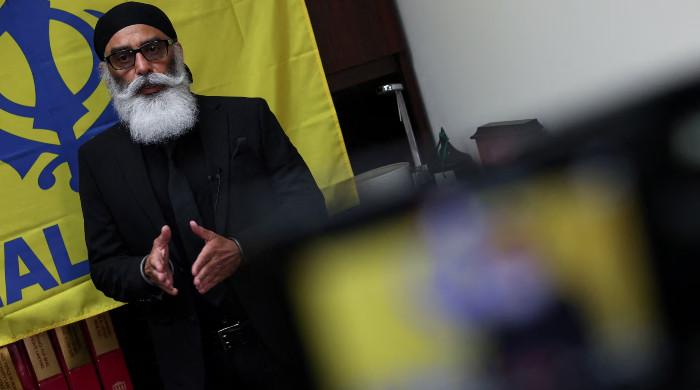
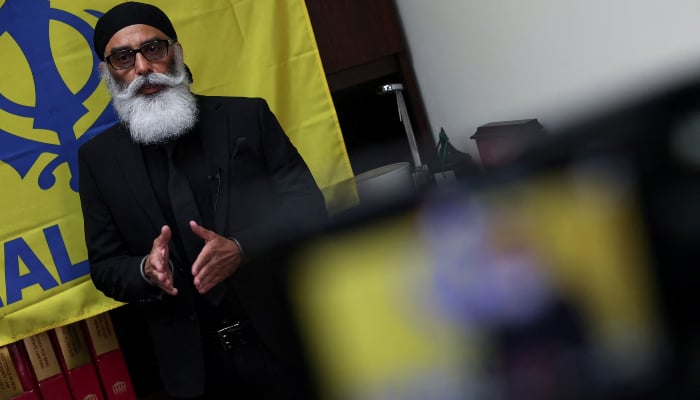
WASHINGTON: Pro-Khalistan Sikhs For Justice (SFJ) has denounced what it described as an “unacceptable escalation” after a call for violence against US President Donald Trump was made by a speaker at an event hosted by ITServe Alliance, drawing applause from some attendees.
A video from an H1B conference in Seattle hosted by ITServe Alliance, the largest H1B advocacy group in the US, has sparked outrage after members mocked Americans, threatened physical violence against the US president and boasted of having more political power than average Americans.
SFJ General Counsel Gurpatwant Singh Pannun said the remarks, which SFJ claims were later amplified online by accounts aligned with Hindutva ideology, constituted a direct challenge to US democratic norms and presidential security.
“A violent threat against the President of the United States is a line that must never be crossed,” Pannun said in a statement. “We are urging accountability for any attempt to normalise political violence on American soil.”
“This crossed a line — a violent threat against the President of the United States from supporters of Modi’s Hindutva extremist ideology is a direct challenge to American sovereignty,” said Pannun. “Modi’s Indo-American H-1B network must be held accountable for normalising political violence inside the US,” the statement emphasised.
SFJ said it has filed a formal complaint with the US Department of Justice and the Federal Bureau of Investigation, requesting a federal investigation into the incitement and its dissemination online. As of publication, federal authorities had not publicly confirmed an investigation.
SFJ urged President Trump to publicly pose what it termed a “loyalty question” concerning Indo-American political allegiances in a conflict involving India under Prime Minister Narendra Modi.
He said: “Will Indo-Americans of Hindu faith bear arms for the United States in a war against Modi’s India?’ The American public has a right to know where the loyalties of Indo-Americans lie — with the US Constitution or with Modi’s extremist ideology.”
“There is no place on American soil for Modi’s violent Hindutva ideology. And if required, Hindutva extremism will be crushed under the full force of the US Constitution,” the SFJ leader said.
SFJ reiterated that the Khalistan Referendum is, in its words, a peaceful and democratic campaign advocating Sikh self-determination in India’s Punjab region. Pannun added that, in a US–India conflict initiated by Washington, pro-Khalistan Sikhs would support the United States.
-

 Fashion1 week ago
Fashion1 week agoIndonesia’s thrift surge fuels waste and textile industry woes
-

 Business1 week ago
Business1 week agoBP names new boss as current CEO leaves after less than two years
-

 Tech1 week ago
Tech1 week agoT-Mobile Business Internet and Phone Deals
-

 Sports1 week ago
Sports1 week agoPKF summons meeting after Pakistani player represents India in kabaddi tournament
-
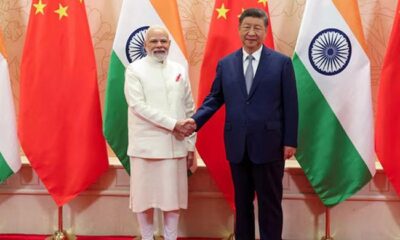
 Entertainment1 week ago
Entertainment1 week agoIndia streamlines visa rules in boost for Chinese professionals
-

 Sports1 week ago
Sports1 week agoUWCL grades for all 18 teams: Leuven get A+; Barça an A-, PSG fail
-
Sports6 days ago
Alabama turned Oklahoma’s College Football Playoff dream into a nightmare
-
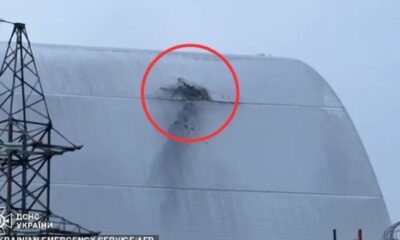
 Entertainment1 week ago
Entertainment1 week agoRadiation fears rise after cracks found in $2 billion Chernobyl shield






